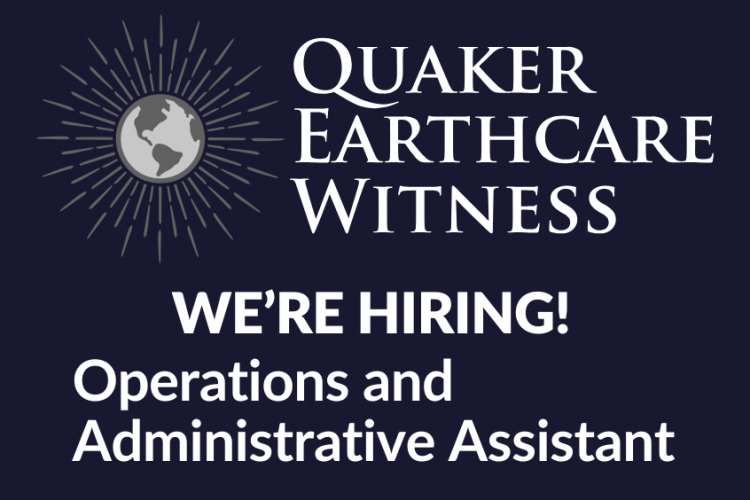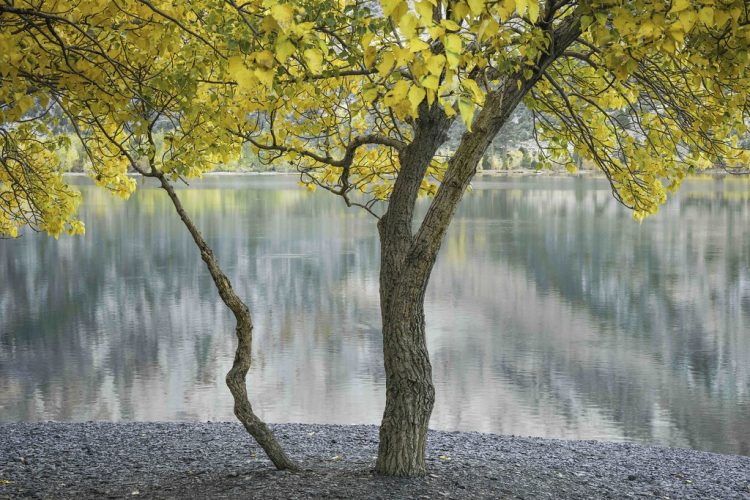FCNL & the Moral Call to Conscience on Climate
by Emily Wirzba, FCNL
I OFTEN BECOME OVERWHELMED knowing that climate disruption is causing global temperatures to increase, sea levels to rise, and ecosystems to be irreversibly damaged. At times I become so frustrated at the seeming inability of the U.S. to take meaningful action, despite the immense scale of the problem. I reflect on what actions I can personally take to work for an Earth restored. While there are numerous ways for individuals to take action, we at the Friends Committee on National Legislation would like to share with you one path forward.
Many Americans are deeply concerned about climate disruption and want action taken to reduce our greenhouse gas emissions. Yet, in Congress, legislative solutions to climate disruption are obscured by a fog of partisanship.
Following the tenet of Alcoholics Anonymous, before you can solve a problem, you must first admit you have one. Unless there is bipartisan recognition of human-caused climate disruption in Congress, meaningful discussions around the most effective ways to reduce national greenhouse gas emissions cannot occur.
How can we show Congress that climate disruption is one of the greatest challenges facing humanity? How can we work in a truly nonpartisan fashion to advocate for an Earth restored?
When I attended the QEW Steering Committee meeting in Chicago this past October, I was inspired to learn about the ways many of you were working for healthy communities and creation. I am eager to see how the FCNL working group committee can continue to strengthen the relationship between QEW and FCNL. I believe that as faith communities continue to work together, we can better accomplish the changes we seek.
Faith communities have played significant roles in social movements throughout history. Now, more than ever, we believe that the faith community is needed to elevate the moral frame within which to discuss climate disruption. Remaining silent in the face of this great challenge tacitly endorses Congressional inaction.
We at FCNL believe that faith communities are uniquely suited to issue to Congress a moral call to conscience on climate disruption. Faith communities are grounded in a care for creation that will enable our children, the vulnerable, and future generations to thrive. As people that strive to see the light of God in each individual, we can build bridges with those around us, seeking our commonalities rather than our differences.
We know that many Congressional leaders privately admit the realities of climate disruption, yet feel like they don’t have the political space to publicly say so. By appealing to our legislator’s faith or moral background, we can create the space for meaningful dialogue on climate disruption.
At FCNL, we seek to amplify the faith note in the chord of climate advocacy, enabling the powerful, moral messaging of the faith community to be uniquely articulated and expressed. We urge our constituents to hold quiet conversations with their members of Congress from the basis of their religious, ethical, or moral perspectives, calling upon them to express bipartisan recognition that climate disruption is happening and human-caused, and to commit to taking action.
Though bipartisan recognition is not a tangible legislative goal, we view the current prospects for meaningful climate legislation like seeds tossed onto rocky ground or shallow soil. In order to have deep and fertile soil for legislative solutions to flourish, we need bipartisan recognition in Congress. No climate legislation will pass either the House or the Senate unless it’s bipartisan.
The seemingly simple action of communicating with your elected representative is powerful, vastly underrated, and accessible to all. Members of Congress respond to the political will that we as people of faith can create. While at times we become overwhelmed by the amount of money that influences politics, we must remember that the only antidote to organized money is organized people. If we truly are concerned about the effects of climate disruption on our earth, we must continue to use our voices and take responsibility for the world we seek.
It is easy to get involved in our strategy. We ask that individuals convene interfaith delegations to speak with their members of Congress from the heart about why they view action on climate disruption to be so vital. We ask that people show their members of Congress that people from all faith and civil-society backgrounds are concerned about rising sea levels, more frequent and intense storms, and increasing temperatures. This message is much more powerful when it reflects a diversity of backgrounds, so we urge you to gather as many faith traditions as possible in your delegation.
We suggest that people tell stories about how climate disruption is already harming communities, and why that matters as people of faith. We recommend that individuals ask their members of Congress to organize a bipartisan acknowledgement of climate disruption, either through a Congressional resolution, press-conference, or statement. Finally, we suggest that people urge their representatives to have discussions with those across the aisle about how to best take action, urging them to have enough political courage to become national leaders for their grandchildren.
If this strategy resonates with you, FCNL can provide as much assistance as needed to help these quiet conversations go smoothly. We have materials that you can give to your legislators. We have created a “road-map” for interfaith lobby visits and are happy to walk individuals through this entire process.
Quiet conversations from the heart at the grassroots level allow us at FCNL to have incredible opportunities to visit with offices in D.C. that often have previously declined our invitations to meet. Already, we have seen how powerful the constituent and student visits are in our lobbying efforts, when framed by the moral call to conscience. We urge you to view our resources online at http://fcnl.org/issues/environment, and to contact jose@fcnl.org and emily@fcnl.org with any questions you have about how to get involved.

